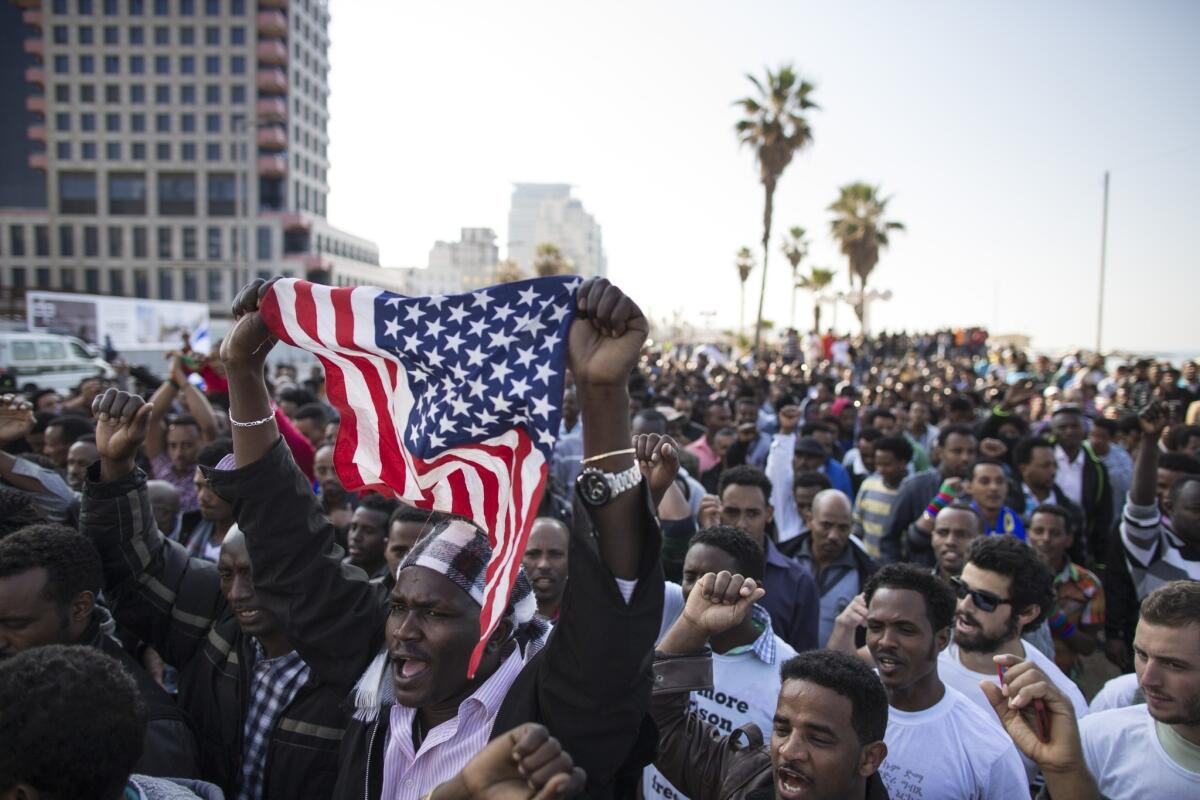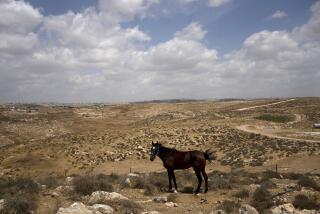Africans seeking asylum in Israel call for international pressure

JERUSALEM -- For a second day running, African immigrants in Israel took to the streets of Tel Aviv to protest government policy and demand better treatment.
Monday’s rally was a call for international intervention, as thousands of demonstrators marched from one embassy to the next, with letters to ambassadors urging them to use their influence with the government to stop incarcerating immigrants and to treat asylum seekers fairly.
Thousands gathered outside the U.S. Embassy, where one such letter was delivered for Ambassador Dan Shapiro. After rallying outside the diplomatic missions of Britain, Germany, Ethiopia and the European Union, protesters continued to the local offices of the United Nations High Commissioners for Refugees.
On Sunday, the UNHCR issued a statement criticizing Israeli laws and policies that “do not live up to the spirit of the 1951 Refugee Convention.” Israel is a signatory to the treaty, an agreement to protect the rights of people unable or unwilling to return to their countries of origin because of “a well-founded fear of being persecuted.”
More than 50,000 African immigrants, mostly from Eritrea and Sudan, have settled in Israel in he past decade after entering the country illegally through its border with Egypt, now fenced off.
Israel cannot return them to their troubled countries but is reluctant to recognize individuals as refugees and grant them asylum. Since taking over the refugee status determination process from the UN last decade, Israel has rejected most requests, according to rights organizations.
Interior Minister Gideon Saar, who oversees immigration, said Israel is fully committed to the refugee convention. “I personally review the requests but very few qualify as refugees,” Saar told media, reiterating the government position that the migration is overwhelmingly economic.
Monday was the second day into the immigrants’ campaign, which includes striking from their mostly menial jobs such as washing dishes at restaurants, positions turned down by most Israelis.
Referring to support expressed by restaurant owners for their African employees’ protest, Saar said Israel’s policies would not be determined by “restaurateurs crying over a sink-full of dirty dishes.”
The community of African asylum seekers published a call to action on Facebook, in a page dedicated to their campaign.
Speaking to Israeli media before his planned speech outside the U.S. Embassy, one of the protest organizers, identified only as Daweed, explained the immigrants’ demands. “All we ask is that the government review our requests for asylum fairly and transparently” and stop the arrests, he said.
Daweed fled Eritrea four years ago, crossed into Israel from Sinai and like many others, was directed to Tel Aviv. “We escaped dictatorships and came here to save ourselves. Until we can return to our countries, we should be treated as human beings,” he said in fluent Hebrew.
Sobelman is a special correspondent.
More to Read
Sign up for Essential California
The most important California stories and recommendations in your inbox every morning.
You may occasionally receive promotional content from the Los Angeles Times.










